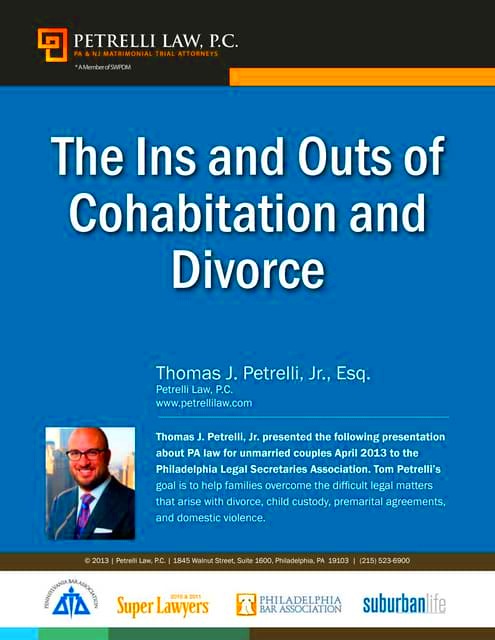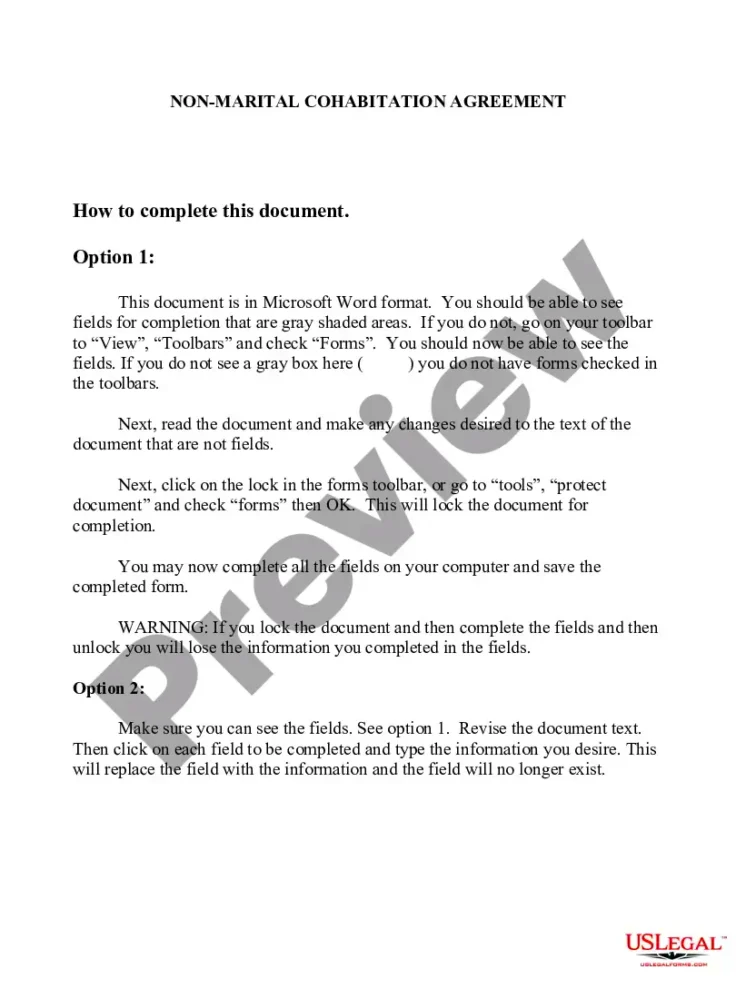California Cohabitation Laws Simplified
The cohabitation laws in California may appear intricate but their purpose is to cater to the requirements of couples who decide to cohabitate without tying the knot. Given that a substantial portion of the population in this state prefers living together rather than getting married grasping the legal aspects is essential. Whether you currently share a living space with a partner or are contemplating cohabitation being aware of your rights and obligations can significantly impact how you navigate your relationship.
What is Cohabitation in California?

In California cohabitation is when two individuals in a long term romantic relationship choose to reside together without getting married. This option is popular among couples who wish to combine their lives and assets without formalizing their commitment through marriage.
In California just because you live together doesn’t mean you get the same legal rights as married couples. But the state understands that couples sharing a home and life may have specific needs and challenges that call for legal support. Cohabitation is defined by.
- Long-Term Relationship: Both partners live together and share a domestic life.
- Emotional and Financial Commitment: The partners have a committed and ongoing relationship.
Its fascinating to note that a significant number of individuals in California opt for living together for a range of personal motivations. These can include the desire to bypass the formalities of marriage or simply wanting a more adaptable relationship structure. While cohabitation comes with advantages its crucial to recognize that it doesn’t automatically grant the same legal safeguards as marriage. This highlights the importance of being well aware of your rights and responsibilities in such arrangements.
Legal Rights of Cohabitants in California

In California people living together without being married dont enjoy the same legal rights as married couples. Nevertheless there are some legal safeguards and responsibilities in place that can assist in addressing and resolving matters that come up during cohabitation.
Key Legal Rights Include:
- Property Rights: Unlike married couples, cohabitants do not automatically share ownership of property acquired during the relationship. However, if property is purchased together, both partners typically have a claim to it.
- Financial Support: There is no legal obligation for one cohabitant to support the other financially, unless a cohabitation agreement specifies otherwise.
- Child Custody and Support: If a couple has children together, both partners have legal responsibilities for child support and custody arrangements, similar to married couples.
One of the major hurdles for couples living together is the absence of a framework to handle conflicts and divide assets. This implies that without a cohabitation agreement it can be tough to sort out matters such as sharing property or providing financial assistance when the relationship comes to an end.
To tackle these obstacles numerous couples opt to establish a living together agreement that details their rights and duties. This can assist in ensuring that both partners are on the same page regarding their responsibilities and anticipations offering a feeling of reassurance and transparency.
How Cohabitation Affects Property Division

Dividing up assets in the case of cohabitation can be quite challenging. Unlike marriage where property rights are clearly outlined by legal standards cohabitation doesn’t have a set structure. As a result figuring out how to split belongings after a breakup can turn into a process.
In California when you and your partner purchase a property together while living together you typically hold joint ownership of the property. However if only one partners name is on the title things can get a bit tricky legally. Here are some factors to keep in mind.
- Joint Purchases: If both partners contribute to the purchase or mortgage payments, they usually share ownership, but it’s essential to keep clear records of contributions.
- Individual Property: Property owned by one partner before the relationship typically remains theirs unless it has been commingled with joint assets.
- Legal Agreements: A cohabitation agreement can outline how property should be divided if the relationship ends, reducing potential conflicts.
Based on what I’ve observed not having contracts in place can result in conflicts. Friends who failed to make arrangements beforehand often found themselves entangled in protracted lawsuits over property matters. A touch of planning can prevent a great deal of pain and costs.
Financial Responsibilities of Cohabitants
When it comes to sharing finances in a cohabiting relationship the approach can differ significantly based on the arrangements made by the partners involved. Unlike in marriage where financial responsibilities are usually more structured people living together without tying the knot need to discuss and establish their own financial obligations.
Here are a few key points to consider:
- Shared Expenses: Couples living together usually share household expenses such as rent, utilities, and groceries. It’s a good idea to set clear expectations about who pays for what to avoid misunderstandings.
- Individual Debts: Debts incurred by one partner generally remain their responsibility, but joint debts or loans must be managed carefully to avoid legal complications.
- Financial Contributions: If one partner contributes more financially, it might be wise to document these contributions to ensure fairness in the event of a separation.
Based on what I’ve seen handling money matters as a couple calls for honest conversations and being open with each other. Its not solely about dividing expenses but also about making joint plans for what lies ahead. Having agreements can ease financial pressures and make sure both partners are aligned in their approach.
Differences Between Cohabitation and Marriage
Although living together and getting married may appear alike at first glance they have unique legal and societal distinctions. Recognizing these differences is essential for individuals contemplating cohabitation without tying the knot.
Lets take a look at the differences to emphasize the main points.
| Aspect | Cohabitation | Marriage |
|---|---|---|
| Legal Status | Not legally recognized as married; limited legal rights | Fully recognized by law; extensive legal rights and protections |
| Property Rights | Depends on agreements and ownership; no automatic rights | Automatic joint ownership of marital property |
| Financial Support | No legal obligation unless specified in an agreement | Spousal support obligations in case of separation or divorce |
| Legal Protections | Limited; often requires formal agreements | Comprehensive; includes inheritance rights, healthcare decisions, etc. |
Deciding whether to live together or get married is a choice that is influenced by your own feelings and circumstances. In my view it goes beyond just the legal aspects and involves what feels right for you and your partner. Each option has its own challenges and advantages so it’s important to reflect on what aligns with your beliefs and aspirations.
Legal Protections for Cohabitants
In California cohabiting without tying the knot doesn’t automatically come with the same legal benefits as being married. Nevertheless there are ways for couples living together to establish certain rights and protections. These safeguards can play a role in ensuring that both your needs and your partners are taken into account, during difficult situations such as breakups or legal conflicts.
Here are a few key legal safeguards and factors to keep in mind.
- Domestic Partnership: In California, a domestic partnership offers some of the same rights as marriage, including property rights and health care benefits. To qualify, both partners must meet specific criteria and register with the state.
- Legal Agreements: Cohabitation agreements are vital for outlining financial responsibilities, property rights, and other key aspects of your relationship. These agreements are not automatically provided by law but can be created with the help of an attorney.
- Healthcare Decisions: Without marriage or a formal legal agreement, making medical decisions for a partner may be challenging. Consider creating a healthcare power of attorney to ensure you have the authority to make decisions if needed.
Based on what I’ve been through I can attest to the importance of having these safeguards set up. A dear friend of mine went through a challenging situation when her significant other fell sick and she wasn’t legally acknowledged to make choices. A bit of planning ahead could have saved her from a lot of heartache. Taking steps in advance can help ensure that you and your partner are both shielded and ready for any unforeseen circumstances.
How to Formalize Your Cohabitation Agreement
Putting a cohabitation agreement in place is a smart move that can prevent headaches later on. Think of it as creating a guide for your relationship that outlines the rights and obligations of both partners. While it’s not mandatory it can bring reassurance and clarity.
Here’s how you can go about creating one:
- Consult an Attorney: Working with a legal professional ensures that your agreement is comprehensive and tailored to your needs. They can help you understand your rights and draft a document that holds up in court.
- Discuss Key Issues: Sit down with your partner and discuss important matters such as property ownership, financial contributions, and what happens if the relationship ends. Open communication is crucial.
- Draft the Agreement: Your attorney will draft the agreement based on your discussions. Ensure that both partners review it thoroughly before signing.
- Sign and Notarize: Once finalized, both partners should sign the agreement, and it may be beneficial to have it notarized to enhance its legal standing.
Based on what I’ve seen couples that go through this process tend to strengthen their bond by establishing clear expectations and minimizing potential disagreements. It’s similar to establishing guidelines in a game – having a mutual understanding of your positions makes things more seamless and easier to navigate.
Frequently Asked Questions
With the rise of cohabitation, individuals often seek clarity on their rights and obligations. Below are a few of the commonly asked queries regarding cohabiting without marriage in California:
- Do cohabitants have the same rights as married couples? No, cohabitants do not automatically have the same legal rights. However, certain protections can be secured through agreements and legal arrangements.
- What happens to our property if we break up? Without a cohabitation agreement, property division can be complex. Typically, property owned jointly is divided based on contributions, while individual property remains with the original owner.
- How can I protect myself legally in a cohabitation relationship? Creating a cohabitation agreement, registering as domestic partners, and having legal documents like healthcare powers of attorney can help protect your rights.
- What should be included in a cohabitation agreement? Key elements include property ownership, financial responsibilities, and terms for ending the relationship. It’s wise to cover as many details as possible to avoid future disputes.
These inquiries are fairly typical and tackling them can shed light on the doubts that often arise when sharing a living space. Based on my observations being knowledgeable and ready can greatly impact how one navigates the challenges that come with cohabitation, outside of wedlock.
Conclusion
Figuring out the laws around living together can be tricky, but knowing your rights and duties is crucial for a smooth and harmonious relationship. There are many factors to think about when you decide to cohabit without getting married such as dividing property, handling financial responsibilities and having legal safeguards in place. Drawing from my experiences and observations taking steps like drafting a cohabitation agreement and recognizing the distinctions between cohabitation and marriage can be really beneficial for you. By planning ahead and maintaining communication with your partner you can make sure that both your legal and personal needs are met allowing you to focus on creating a life together.


